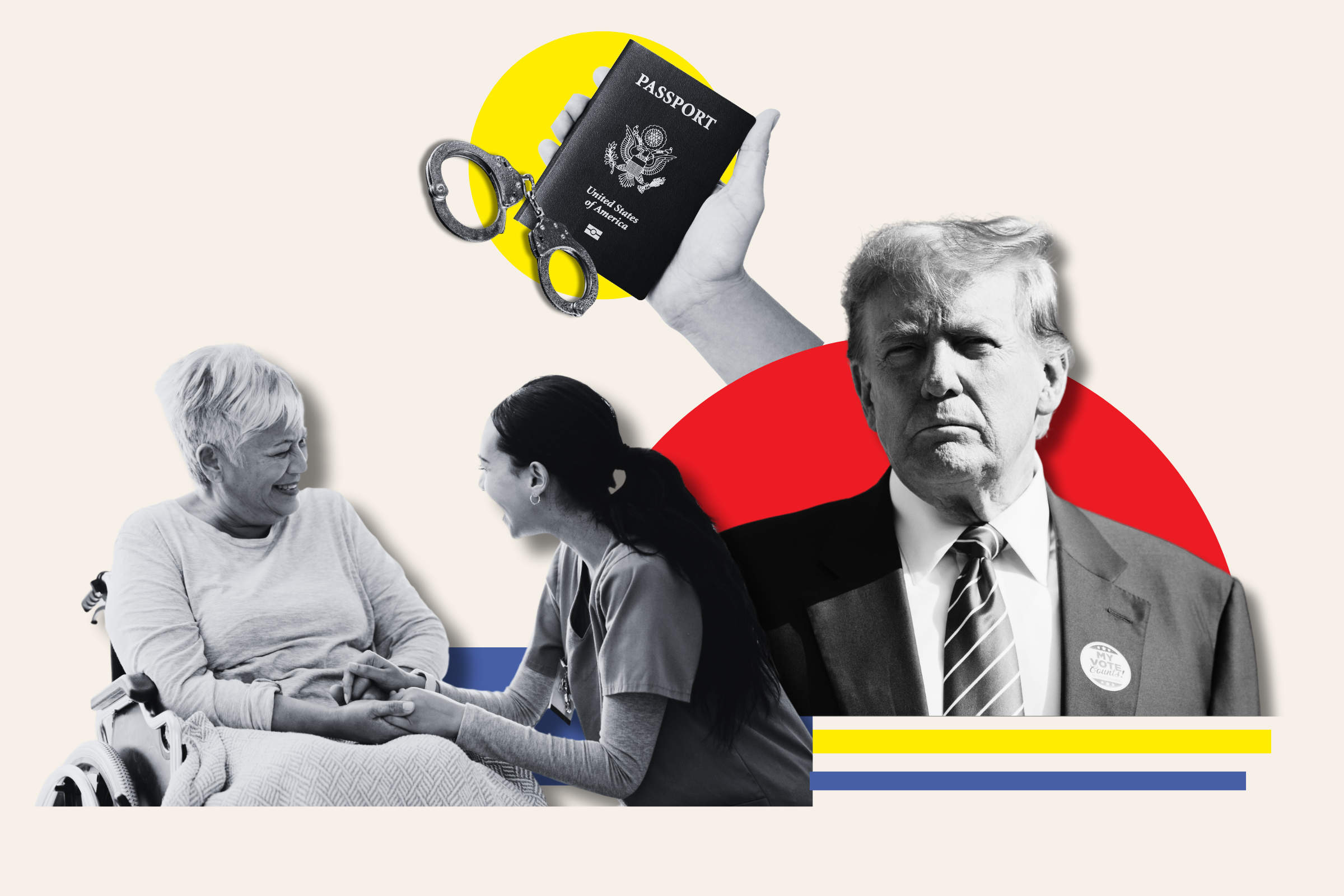🎙️ Voice is AI-generated. Inconsistencies may occur.
Counties in Arizona, a state that flipped to President Donald Trump in last year's election after narrowly supporting former President Joe Biden in 2020, have agreed to work with the Department of Homeland Security (DHS) to review their voter rolls and verify the citizenship status of voters, according to court documents reviewed by Newsweek.
Newsweek has reached out to a legal representative for the plaintiff and defendant as well as the DHS press team for comment via email on Sunday.
Why It Matters
Republicans have long sought stricter voter registration guidelines, saying that it would prevent voter fraud. The Republican-led House on Friday passed the SAVE Act, which stands for the Safeguard American Voter Eligibility Act, and, if it becomes law, would impose new federal requirements for proving citizenship when registering to vote.
Critics have pushed back on various voting eligibility and requirement proposals, saying there's little evidence of widespread voter fraud and new measures would make it more difficult for some Americans to vote.
While some U.S. jurisdictions permit noncitizens to vote in certain local elections, only U.S. citizens, not illegal immigrants or visa holders, are eligible to vote in federal elections.
Arizona borders Mexico, making immigration a frequent focus of policy discussions. In 2024, director of race and ethnicity research at Pew Research Center, Mark Hugo Lopez, estimated around "250,000 undocumented immigrants live in Arizona," which is around 3.5 percent of Arizonans. Trump has pledged to launch the largest mass deportation operation in U.S. history.
The state, and Maricopa County in particular, have been at the center of voter fraud claims in recent years, especially after Trump lost the county in 2020, fueling widespread debate and misinformation about voter fraud, which there was no substantial evidence of.

What To Know
America First Legal (AFL), a nonprofit conservative public interest organization founded by Stephen Miller, Trump's Homeland Security adviser, filed the lawsuit Strong Communities Foundation of Arizona Inc. et al. v. Richer et al. in U.S. District Court for the District of Arizona on August 12, 2024. The case, overseen by Judge Krissa Lanham, was terminated on April 9 after the parties agreed to a stipulation of dismissal.
The decision was seen as a win for AFL, as the 15 county defendants agreed "to ask DHS to begin responding to requests under 8 U.S.C. §§ 1373 and 1644 to verify the citizenship of each county's federal-only voters," a key goal in the plaintiff's original complaint.
The U.S. codes essentially allow a county recorder to confirm with DHS if someone on the voter roll is a U.S. citizen and allows local and state agencies to request immigration information. In the lawsuit filings, Coconino County noted that it had not submitted requests to DHS regarding immigration status of voters.
Maricopa County, the fourth most-populous county in the U.S., confirmed in an April 8 statement the recorder's office has "initiated communications" with the DHS.
"The Office is seeking assistance to verify the citizenship status of registered voters who have not provided Documentary Proof of Citizenship (DPOC). This action aligns with Arizona law and underscores the Recorder's responsibility to maintain accurate voter registration rolls," the statement said.
In Arizona, state law indicates only U.S. citizens can vote in elections. Voters who do not submit DPOC and whose citizenship cannot be verified by the state's Department of Motor Vehicles (DMV) or "other record in the statewide voter registration database is registered as a 'federal-only' voter," which can only vote in federal races.
The county recorder must inform the "federal-only" registrant within 10 business days that "they have not satisfied the DPOC requirements; and they must submit DPOC to become a 'full-ballot' voter, and must provide DPOC by 7:00 p.m. on Election Day in order to vote a 'full-ballot' in that election."
If a registrant does not provide DPOC and no other available records confirm their citizenship status then the "county recorder must reject the registration," according to state law.
What People Are Saying
James Rogers, senior counsel for America First Legal, told Newsweek in an email statement Monday: "This settlement is a great result for all Arizonans. This will help county recorders find and remove any aliens on their voter rolls.
"It will also potentially enfranchise federal-only voters whose citizenship is confirmed, which would allow them to vote in state and local elections. AFL congratulates each of Arizona's 15 county recorders for taking this bold and important step for election integrity in the state"
Maricopa County recorder Justin Heap said in an April 8 statement: "I promised the voters of Maricopa County that I would pursue every avenue to clean up our voter rolls, and that's exactly what we're doing. Ensuring only citizens can cast a ballot in future elections is essential to restoring trust in Maricopa County elections. It is my sincere hope that DHS will respond affirmatively and provide the resources we need to run comprehensive checks of our voter registration system against their non-citizen database. 'One citizen, one vote' isn't just a slogan, it is the right of every American citizen."
Costas Panagopoulos, professor of political science at Northeastern University, told Newsweek on Wednesday that the SAVE Act would "make it more difficult for anyone who has to incur greater costs to register to vote. That could include not only the distance they would need to travel to locations where they can do that, but also disproportionately affect lower-income voters who may not be able to take time away from their work commitments in order to do so."
Darrell West of the Brookings Institution told Newsweek last week regarding SAVE Act: "The new registration requirements may make it more difficult for rural voters to cast their ballots. People there may not have all the documents that are required or have easy access to county courthouses. The legislation puts obstacles in the way of voting, which may have the affect of depressing turnout."
What Happens Next?
The SAVE Act heads to the Senate, where it could struggle to overcome the 60-vote filibuster. Democrats have been generally opposed to the legislation, and it would need support from seven of them in the Senate to pass, as Republicans have 53 seats in the upper chamber.
Arizona's Governor Katie Hobbs, a Democrat, called for a special election to fill the seat of the late-Representative Raúl Grijalva after he passed away in March. Eligible voters will be able to select the next representative on September 23, with a voter registration deadline of August 25.
Update 4/16/25, 11:01 a.m. ET: This article has been updated with comment from James Rogers.
fairness meter
About the writer
Mandy Taheri is a Newsweek reporter based in Brooklyn. She joined Newsweek as a reporter in 2024. You can get ... Read more




